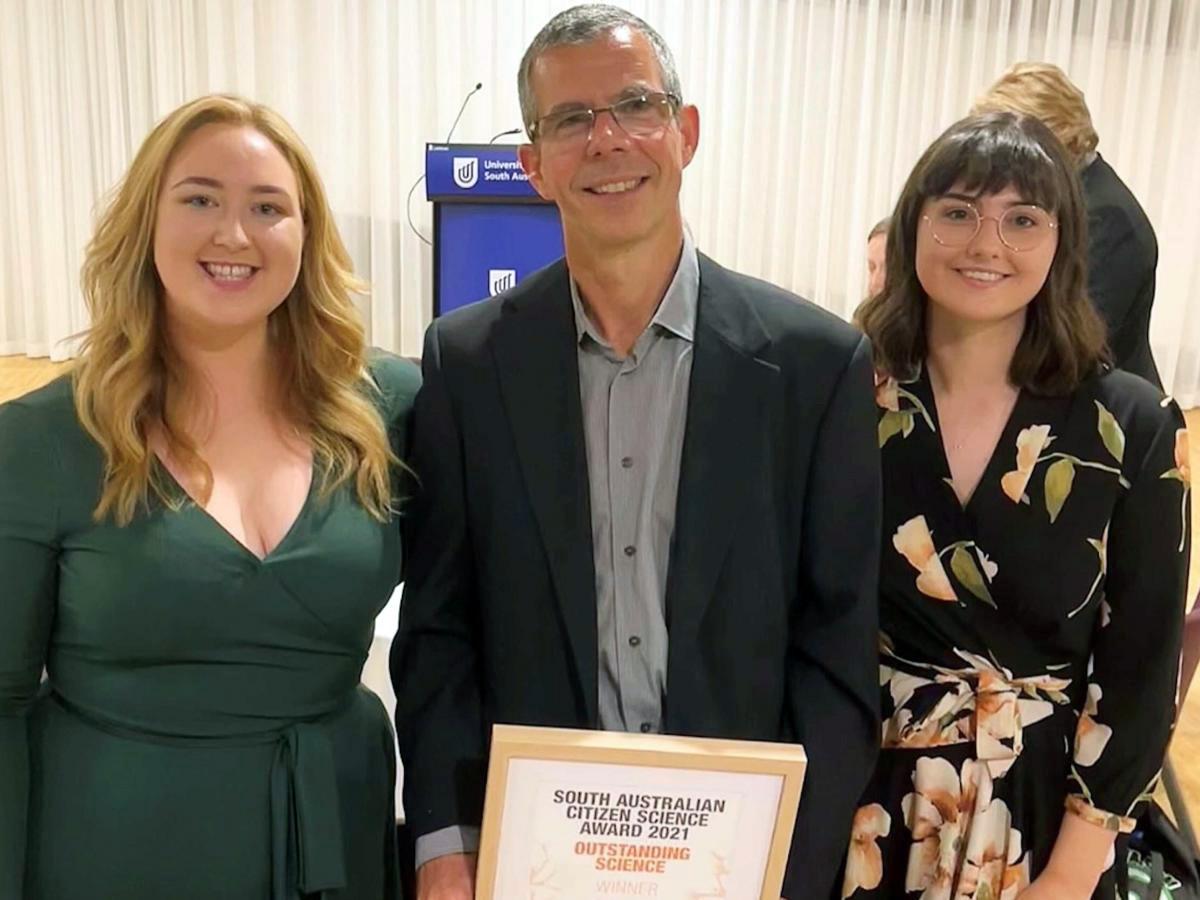Top citizen science projects feature in SA Science Awards

Echidna CSI team members, from left, Dr Tahlia Perry, Professor Frank Grutzner and Isabella Wilson.
The University of Adelaide’s Echidna Conservation Science Initiative (EchidnaCSI) has received the Citizen Science Award for Outstanding Research and Science at the inaugural awards for Citizen Science Projects in South Australia.
EchidnaCSI is a citizen science project where members of the public across Australia are encouraged to take photos of echidnas found in their local area through a dedicated phone application, and collect echidna scat (poo) for molecular analysis of diet and gastric health.
Collecting this information allows researchers to learn more about wild population numbers, diet, distributions, and overall health of echidnas to support their conservation.
Since its launch four years ago, 11,000 participants have contributed to more than 12,000 echidna sightings. People have also collected more than 700 samples of echidna poo for scientific analysis.
Dr Tahlia Perry from the University of Adelaide’s School of Biological Sciences and the Environment Institute said: “The large number of sightings and scats enthusiastically provided by participants has allowed us to investigate echidna diet and the impact of the bushfires on echidna gut health.
“This is particularly the case on Kangaroo Island, where we have a very large and passionate participant base. Citizen scientists on KI have provided important data and scat material so we can assess the bushfire impact on the local echidna population.”
Kangaroo Island is a special part of EchidnaCSI and is where key collaborator, Dr Peggy Rismiller, has studied echidnas for more than 30 years.
“It’s been exciting to see the positive changes in population growth over time across Australia, but especially on KI,” said Dr Perry.
“We hope to be able to continue with EchidnaCSI well into the future because ongoing data will lead to more-informed and focussed conservation efforts.”
The Citizen Science Awards is a new initiative supported by the Chief Scientist of South Australia, Professor Caroline McMillen, Inspiring South Australia, and the South Australian chapter of the Australian Citizen Science Association, to recognise citizen science in South Australia.
In the Outstanding Community Engagement category, the iBandi project led by University of Adelaide scientists was named as a finalist.
iBandi is a pop-up conservation citizen science project in the Adelaide Hills improving protection for endangered southern brown bandicoots by discovering suitable – but unoccupied – habitats.
A diverse range of project partners have made this a success, including the University of Adelaide Environment Institute, South Australian Department for Environment and Water, Hills and Fleurieu Landscape Board, Trees for Life Inc. and a large number of community groups, organisations and individuals.
